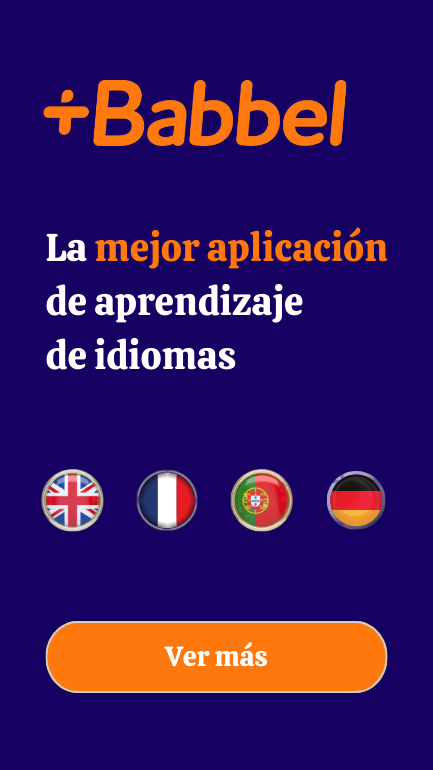Table of contents
Trading can be tough. Many people find themselves facing challenges they hadn’t expected, especially when dealing with international markets. One major hurdle? The language barrier.
Understanding and speaking the languages of your trading partners can make a huge difference.
A fact to keep in mind – studies show that companies with employees who are fluent in English tend to succeed more on the global stage. This article will guide you through how mastering new languages can help improve your trading strategies, from analyzing market sentiment to navigating legal landscapes across different countries.
Whether you’re interested in stocks, cryptocurrencies, or emerging markets, enhancing your language skills could be the key to unlocking higher levels of success.
Ready for a change?
Key Takeaways
- Learning languages helps traders understand market feelings and global trends, making better trading decisions.
- Using social media and financial news in multiple languages can reveal what investors think, helping predict market movements.
- Language skills improve communication for international trading, negotiations, and understanding different cultures.
- Tools like online courses and apps offer easy ways to learn new languages, boosting chances of success in trading.
- Speaking more than one language gives traders a competitive edge in emerging markets by building trust with local partners.
Market Sentiment & Language
Market sentiment shows what traders feel about the market. It helps them guess where prices might go. Tools like natural language processing look at news and social media to get this feeling from words used online.
Experts, like Dan Calugar, suggest using these techniques for better trading choices. Knowing how traders around the world feel can change how you decide to trade.
Social media is a big place for finding out market mood. People’s posts and comments give clues about whether they’re happy or worried about their investments. This info guides many in making trades that could win more money.
After understanding market sentiment, next comes mastering communication for global trading success.
Analyzing Financial News
Traders use online courses to master the art of analyzing financial news. They learn how to sift through articles, reports, and market studies quickly. This skill helps them grasp what’s happening in the trading world fast.
Jeff Swanson, a known expert in trading systems, says that understanding financial news is like having a map in unknown territory.
Tools like natural language processing help traders spot trends and make sense of vast financial data. They don’t just read the news; they dissect it using technology. This approach turns information into actionable insights.
Traders become better at predicting which way the market will swing next. Now, let’s see how social media also plays a role in understanding market sentiment.
Social Media for Sentiment
Social media is a powerful tool for understanding how people feel about the market. Companies use technology to figure out if comments are happy or sad. This process, called sentiment analysis, helps businesses react quickly to customers’ worries.
It makes customer service better by dealing with problems right away. Using this method, traders gain insights into what investors think and feel.
Many studies look at how social media affects trading strategies. Experts in finance use NLP (Natural Language Processing) to make sense of emotions on platforms like Twitter and Facebook.
This information gives companies a big advantage. They learn what consumers want and avoid mistakes before they happen. Social media opens doors to real-time feedback that shapes investment decisions and marketing strategies, keeping brands ahead in the game.
Communication and International Trading
Mastering English helps businesses grow in the global market. It’s known as the language of international business, making talks and deals smoother. Companies face big challenges without it.
For instance, a firm might struggle to share its ideas with partners abroad or misunderstand contract details if there’s a language gap.
Language mastery accelerates trading success by breaking down barriers.
Using mentors, online communities, and language exchange platforms can build strong skills in English and other vital trade languages. These tools encourage people to learn through real conversations and feedback.
This practical approach boosts confidence and know-how among entrepreneurs aiming for global reach.
Trust Across Cultures
Building trust across different cultures is key for successful international business. Trust looks different around the world because of cultural norms. Research tells us that while all people value trust, how we show and build this trust can vary greatly from one country to another.
For example, some cultures might focus more on building personal relationships before signing a contract. Others may prioritize clear communication and transparency above all else.
This understanding helps businesses develop stronger partnerships overseas.
To bridge these cultural gaps, companies often turn to language learning apps like Duolingo or hire native speakers who understand both the language and the customs of their new market.
These strategies are not just about translating words but also about conveying respect for other cultures‘ ways of doing business. By showing willingness to learn and adapt, firms can foster deeper connections with their international partners.
Keeping promises and being transparent are universal ways to build trust, regardless of where you’re doing business.
Next comes mastering multilingual negotiations…
Multilingual Negotiations
Multilingual skills play a key role in international trading. Talking to clients or partners in their native language builds trust and closes deals faster. Studies show that speaking multiple languages helps understand cultural differences better.
This is crucial when negotiating terms or discussing contracts across borders.
In the global market, being able to negotiate in more than one language gives businesses a competitive edge. Entrepreneurs who master foreign languages can connect with a wider target audience.
They use creativity and innovation to solve problems during talks. This approach breaks down barriers and fosters long-lasting business relationships abroad.
Emerging Markets Access
Emerging markets are like hidden gems offering big chances for those ready to explore them. These places grow fast and change often, giving investors exciting ways to grow their money.
Learning languages plays a key role here. It not only opens doors to new deals but also helps understand the market better.
Opportunities multiply as they are seized.
– Sun Tzu
Traders who know more than one language can easily connect with local businesses in these growing areas. They get firsthand info on consumer behavior and trends which is crucial for making smart investment choices.
Plus, working together across different cultures builds trust and opens up even more opportunities.
Opportunities in New Regions
Exploring new areas offers big chances for traders. These parts of the world might have different needs or faster growth rates than more known places. This means businesses can find new customers and make more money by selling things people want.
Learning about these places helps companies stand out and grow.
Traders also face challenges with languages in these new areas. Yet, being able to speak many languages gives them an edge. It leads to better dealings, stronger partnerships, and higher sales.
Companies that are good at English often do better in sharing their goods across borders. This skill turns language hurdles into stepping stones toward success in far-off markets.
Language Barriers and Potential
As we move from exploring new regions, the challenge of language barriers emerges. These hurdles can lead to misunderstandings and lost trades. Yet, there lies a great potential for those ready to invest in overcoming these obstacles.
Understanding different languages opens doors to thriving markets across the globe.
Investing time and resources in learning new dialects pays off. One out of four companies in the US has faced trading losses due to not knowing foreign tongues well enough among their staff.
Mastering more than one idiom is no longer just nice-to-have; it’s essential for success in today’s global economy. This mastery leads to better communication with partners worldwide, offering a competitive edge that can turn challenges into lucrative opportunities.
Language in Risk Management
Understanding legal and regulatory insights needs language mastery. Traders and risk managers must work together closely. This teamwork was stressed after the financial crisis. Clear communication helps them follow laws and reduce risks.
Language is a bridge in the vast field of trading risk management.
Cultural nuances also play a big part in managing risks. Knowing these differences can prevent misunderstandings and build stronger global relationships. It’s key to success in international markets.
Legal and Regulatory Insights
Trading rules are like a game’s instructions. They guide traders to play fair and safe. Just as games have rules, trading has laws worldwide. These laws help protect money and keep markets honest.
Lawyers and government bodies watch over these markets closely. They make sure no one breaks the rules.
Laws change from place to place, just like languages do. A trader must know these laws well to avoid getting into trouble. For instance, cybersecurity is big in trading law. Traders must guard their data fiercely against hackers who try to steal it.
Understanding legal guidelines keeps traders out of hot water and ensures they trade the right way everywhere they go.
Cultural Nuances and Risks
Understanding cultural nuances is key to trading success. Different countries have their own ways of doing business. Some prefer quick talks; others like taking their time. These differences can cause misunderstandings if not handled with care.
For example, a fast-talking entrepreneur from the U.S. might unintentionally offend a partner in Japan, where silence is often valued during discussions. Cultural sensitivity helps build trust and opens doors to international markets.
Legal insights are vital for traders looking to expand globally. Knowing the rules and regulations in new regions prevents costly mistakes. It’s not just about language; it’s about grasping the legal environment too.
This knowledge makes managing risks easier and assists in making informed decisions on international ventures.
Next, we will explore how language plays a role in binary options and market analysis strategies.
Binary Options and Language
Binary options traders use specific words to make money. These words help them decide if an asset’s price, like gold or a company’s stock, will rise or fall within a time limit. Understanding this language gives traders an edge.
They know exactly when to enter or leave a trade. This skill requires learning the meaning behind terms unique to binary trading.
Knowing the right language can also help in predicting market movements. Traders gather clues from financial news and experts’ opinions online. They then use strategies to guess where prices will head next.
For those tracking global markets, mastering multiple languages opens up even more opportunities for success. Next, we explore how language plays a role in cryptocurrency trading insights.
Market Analysis Strategies
Understanding the link between binary options and language paves the way for effective market analysis strategies. Traders must grasp candlestick patterns to predict future movements accurately.
This skill is vital in crafting strategies that stand out. Candlestick shapes reveal much about market sentiment, allowing traders to make educated guesses.
Research plays a crucial role too. Traders examine market size, analyze competition, and study consumer habits to forecast trends successfully. These actions form the backbone of trading success, merging detailed investigation with strategic planning for maximum impact on trading decisions.
Predicting Movements
Traders can get ahead by predicting market trends. This helps them see where the stock prices might go. Another tool is sentiment analysis with neutrosophic logic.
It makes guessing the stock market’s future better.
For even more success, traders combine language skills and artificial intelligence. They read financial news and social media to feel the market’s mood. This mix of human skills and tech gives traders a big advantage in making smart choices fast.
Cryptocurrency Trading Insights
Understanding global trends is key after learning how to predict market movements. CNNs, or convolutional neural networks, play a big role in this. They help traders see patterns in cryptocurrency trading.
Mastering tools like moving averages helps too. These are lines that smooth out price data over time.
Knowing the basics of cryptocurrency and its lingo is important for success. This includes getting how cryptocurrencies work and what moves their prices. For bigger wins in trading, educating oneself on these concepts matters a lot.
Doing homework on markets and managing risks makes a trader more ready to take advantage of the ups and downs of cryptocurrency values.
Deciphering Global Trends
As we move from understanding cryptocurrency trading insights, focusing on global trends becomes vital. Markets change fast, driven by news and events around the world. Traders use online training to stay ahead.
They learn what makes prices go up or down. This knowledge is power—it helps them make smart choices.
Reading about new markets opens doors. People find out where to invest next. They look at e-commerce growth in different places—like Asia or Africa. Learning languages plays a big part too.
It helps traders talk with others all over the globe. Sharing ideas leads to better decisions and more success in trading and investing.
International Forums and Chats
Cryptocurrency traders often turn to global forums and messaging boards for tips and trends. These online spaces are bustling with activity from people all around the world. Traders share their insights, discuss new data, and predict future market movements.
It’s like a classroom where everyone is both a student learning from others and a teacher sharing knowledge.
These digital meeting places also host discussions on topics beyond just numbers and charts. Members exchange ideas about which trading platforms work best or how to interpret complex market signals.
Some even talk about the impact of recent news on cryptocurrency values. This mix of technical advice, platform recommendations, and real-time news analysis helps traders make informed decisions.
Conclusion
Mastering languages opens doors in the trading world. Learning from financial news and social media helps you understand market feelings. Communication is key, especially when dealing with different cultures or negotiating deals.
Knowing languages can lead to new chances in emerging markets and help manage risks better by understanding legal terms and cultural differences.
Tools like online courses and language apps make learning easier than ever. They offer a way to practice anytime, anywhere. These resources are practical and effective for gaining the skills needed for success.
Language mastery gives traders an edge. It helps with analyzing global trends, joining international discussions, and making smarter decisions. The impact of speaking more than one language in trading cannot be overstressed.
For those who want to dive deeper, many books, websites, and tutors specialize in language training for businesses. They provide strategies that fit various learning styles.
Taking action today could set you apart tomorrow. Imagine reaching your trading goals because you took the time to learn another language!
Sharing your journey can inspire others too — maybe talk about how a simple conversation led to a big deal or helped avoid a mistake.
FAQs
What is language mastery in trading?
Language mastery in trading means understanding the specific terms, methodologies, and thinking patterns that successful traders like Elon Musk use. It’s about learning the language of entrepreneurship and solving problems effectively.
How can gamification help me learn trading faster?
Gamification turns learning into a game with rewards, incentives, and competitive advantages. This approach makes it fun to tackle complex topics like curve fitting or data-mining, reducing boredom and boosting your ability to stick with it.
Can working with tutors improve my trading skills?
Yes! Tutors who are experts in both teaching and trading can scaffold your learning process. They tailor lessons to fit your style and speed up your journey toward mastering the target language of trading.
Why is collaboration important in learning how to trade?
Collaboration opens doors to new ideas, methods, and problem-solving techniques. Working together—whether with teachers or fellow learners—builds rapport and helps you understand different perspectives within the trading world.
Does understanding the founder’s mindset benefit traders?
Absolutely! Grasping how founders think—people like Elon Musk of Tesla—gives you insight into their problem-solving strategies and entrepreneurial drive. This knowledge can be a powerful tool for anyone looking to succeed in competitive fields such as trading.




